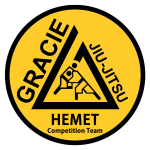Call Us Today! (951) 603-4202 | info@mygraciehemet.com
The Invisible Poison: Gossip and Negativity on the Mat
In the world of martial arts, the greatest enemies aren’t always found on the mat — sometimes, they hide in whispered words, sideways glances, and subtle criticism.
Gossip and negativity don’t leave visible marks like a choke or an armbar, but they erode the foundation of any dojo with the same force as a well-placed strike.

Gossip: A corrosive behavior disguised as “opinion”
Gossip is talking about someone without the intent to help — and without giving them the chance to defend themselves. Often masked as “venting” or “concern,” gossip is recognized by psychologists as a form of passive aggression.
According to Dr. Christiane Northrup, MD, in her book “Dodging Energy Vampires” (2016):
“Gossip is a form of triangulation and covert aggression used to manipulate the social environment and gain influence — usually at the expense of someone else’s reputation.”
In the dojo, this leads to distrust, a breakdown in hierarchy, and a toxic atmosphere.
Traditional martial culture values respect (rei) and honor (meiyo).
Speaking ill of a training partner, instructor, or student goes directly against these core principles.
“What is said in the shadows, rots in the light.” — Adapted Zen Proverb
Negativity: An emotional virus
Chronic negativity — that habitual pessimism, constant complaining, and overly critical mindset — acts like a virus within a group.
Daniel Goleman, in his book “Emotional Intelligence” (1995), explains:
“Emotions are contagious — we transmit and catch moods from one another as easily as we catch colds. A leader’s emotional state can set the tone for the entire group.”
In a dojo setting, this manifests as:
- Unmotivated students
- Insecurity among lower belts
- Resistance to instructors’ leadership
- Destructive competition instead of collective growth
- Persistent negativity destroys dojo culture.
The Impact on Dojo Culture
A dojo’s culture is like an ecosystem: alive, sensitive, and built through every class, every conversation, every attitude.
When gossip and negativity take root, what was once a space for growth becomes an emotional minefield. The mat stops feeling safe — and this directly affects technical performance and team connection.
Students don’t just want to learn techniques — they want to belong to something greater.
The Antidote? Emotional Responsibility and Collective Respect
✅ Speak to, not about.
If something needs to be said, say it to the person involved — with empathy and responsibility.
✅ Correct in private, praise in public.
This principle is widely used in leadership theory and education strategies, including in “The One Minute Manager” by Kenneth Blanchard and Spencer Johnson (1982).
✅ Be the example.
The energy you bring to the dojo shapes the environment more than your words.
✨ Remember: the dojo is a mirror.
What you cultivate inside it reflects your character outside of it.
Conclusion
A dojo is not just a place for physical training.
It is a space for shaping minds and spirits. Caring for it is not just the teacher’s job, but a shared duty for everyone who wears the gi and steps onto the mat with purpose.

